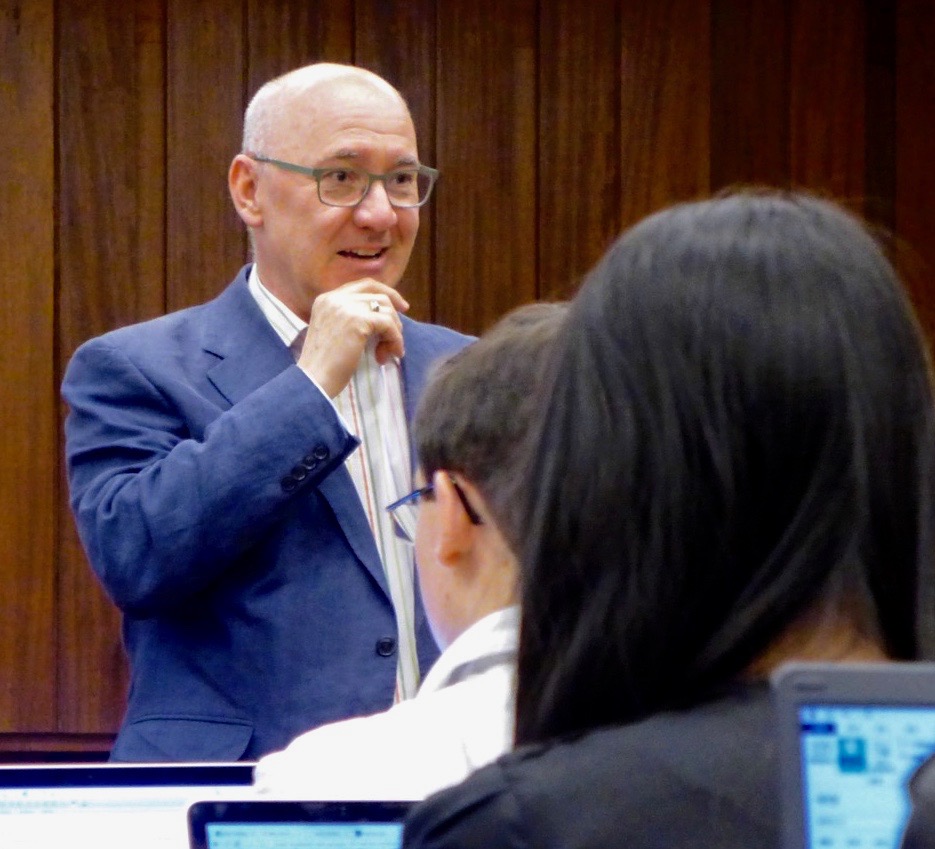Leslie Green
 How did you come to be an academic?
How did you come to be an academic?
I wanted to be a university teacher, and of the subjects I was, or could become, qualified to teach, I enjoyed jurisprudence most, and seemed to be successful at teaching it. As a student, the only other jobs I contemplated were in journalism or law. Law fell off the shortlist when I spent a summer working in a trial court and another with the Criminal Investigation Division of a police force (back when paid internships were still a thing). I hated both. My journalistic efforts never got beyond the odd opinion column, though I still blog. As a postgraduate, I became fascinated with legal philosophy and, a few degrees later, stayed put. I have the best job there could be (for me).
In layman’s terms, what is your research about?
I write mostly about general jurisprudence, and about related problems in political philosophy: the nature of law, sovereignty, adjudication and so on. I’ve also written about human rights, from language and culture, to freedom of speech, to gender and sexuality. I occasionally venture into the history of philosophy and have written and lectured about figures like Hans Kelsen and David Hume. And the Buddha!
In accessible terms, what are some of the most important claims you have argued for? And some of your central views in, or contributions to, jurisprudence?
The claims that are most important to me were usually pinched from earlier philosophers, though I find new routes to old conclusions. In jurisprudence, I’ve defended the view that all law is positive law, that judges have duties to improve (as well as apply) law, that law should be used to improve morality, and that law, just by its nature, is a morally risky business. Some of my work in human rights, especially about gender, sexuality and pornography has attracted attention. All sorts of attention.
What do you find most exciting about your research?
The sign that something is ‘research’ is that, if you don’t write it up, someone else might do so first. The sign something is scholarship, is that if you don’t write it up, no one else will. The only real research I do, and find exciting, is the discovery of an unknown, or forgotten, writer who has a lot to teach us. I do find my own scholarship exciting, but that is because I enjoy it and enjoy having students correct my errors. Recently, though, I’ve begun to think that in addition to research and scholarship, jurisprudence also need to do some curating: displaying legal philosophy in a way that tells a story, and passes it on without too much breakage, to the next generation of scholars. That’s probably a job for someone other than me.
What are some big trends in Jurisprudence these days and how do you feel about them?
There are no big substantive trends: pluralism reigns. Methodologically, the days of the amateur legal philosopher are on the wane: one can no longer read, let alone assess, many articles in jurisprudence without a grounding in general philosophy. (I have mixed feelings about that, but it is the same elsewhere. There are also no more amateurs in law and economics, or in legal history.) Other trends are worrying: too many articles are too long and too wrong; young scholars are pressured to come up with a bold ‘line’ then stick to it, no matter what. And many people care more about saying something new than about saying something true.
What would you like to see change in academia (at large or your field of research)?
I would like an end to the micro-managing of people’s scholarship, whether by the carrot or the stick. I would like to see an increase in academic literacy among students and scholars: I used to complain that few people read anything published before 1961. Now the cut-off is around 1986. And forget anything not written in English. I wish there were as many good jobs as good postgraduates.
What are some of your non-academic interests, pursuits, or hobbies?
I play baroque flute and have an original instrument from Handel’s day. I live in a very old house with a fairly big garden, which is a joy and a job to keep on top of. I’m studying Irish (language and literature).
If you had to pick a desert island book (academic or not), music album, or film, which one would it be?
I’d want Books I and II of the Well-tempered Clavier, and the recording of them by Ton Koopman. By my theory of individuation, they count as one thing.
This interview was conducted in August 2019 by Carolina Flores (St. Hugh's, MMathPhil, 2016) who is a philosopher working in epistemology and social philosophy.

